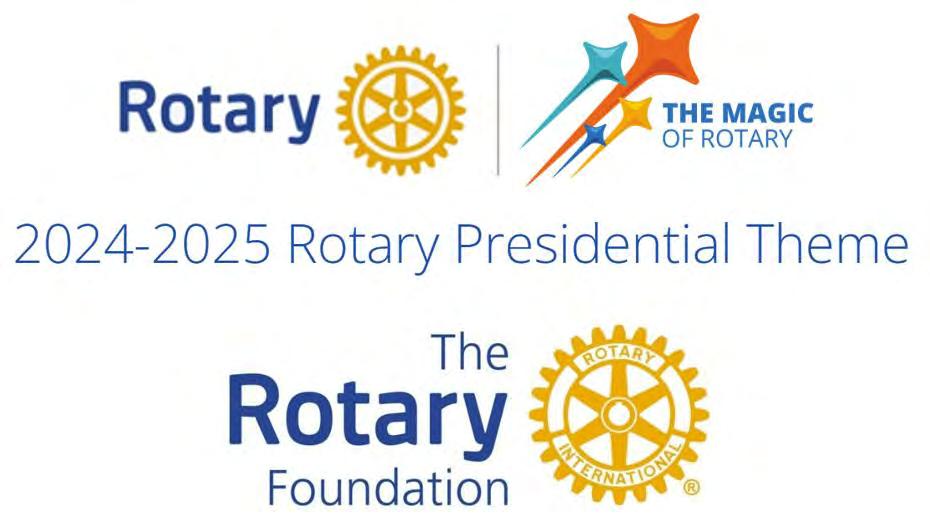
International President 2024-25,


International President 2024-25,




Rotary International President for 2024-25, Stephanie Urchick, highlights her initiatives in 2024-25, including championing the Action Plan and promoting Rotary’s peacebuilding initiatives.
RI President Stephanie urges all members to “grow the Magic of Rotary by adding new members to our Rotary family and providing wonderful experiences to those already involved.”
“Unlock the Magic of Rotary by unlocking the power of women and girls. Advance the Magic of Rotary by fundraising to help change the world.”

“Together, we can make every club and every district ‘simply irresistible. ’”
Click this link to view several videos from the 2024 Singapore Convention including RI President Stephanie and RI President-elect Mário César Martins de Camargo


Rotary is at its best when we foster a sense of inclusion and belonging in our clubs. In fact, I would go so far as to say that belonging is The Magic of Rotary itself.
With a focus on inclusivity and belonging, it is easier to be united in a common purpose. When we are committed to one another and focused on our goals, we are most effective.
Rotary’s Action Plan can help. The Action Plan comes with tools you can use to collect feedback, assess your club’s strengths and weaknesses, and address challenges.

The world is changing, and our clubs can’t afford to stand still. But the changes we make need to be consistent and strategic – building on one another toward a greater vision. The Action Plan can help you work toward that vision and create effective change within your club. Following the Action Plan and addressing suggestions from the community will go a long way to fostering the sense of belonging we want all Rotary members to feel in their clubs.
That’s why expanding our commitment to diversity, equity, and inclusion is so important. Committing ourselves to each other’s well-being is the first step to expanding our reach, allowing us to spread Positive Peace in these troubled times.
Peacebuilding is one of our top priorities, and one of the most effective ways we can build peace is with our Rotary Peace Fellowships, through which peace and development professionals learn how to prevent and end conflict.
We offer the fellowships through our Rotary Peace Centers at leading universities around the globe, where more than 1,800 Rotary Peace Fellows have graduated. And thanks to a $15.5 million gift from the Otto and Fran Walter Foundation, we can continue supporting peacebuilders in more regions with that next peace center at Bahçeşehir University in Istanbul.
Opening another peace center is a monumental achievement, and it is my great honour to invite you to celebrate at next year’s Rotary Presidential Peace Conference at the Istanbul center. The three-day conference 20-22 February will highlight the many ways our family of Rotary advances peacebuilding. Registration for the conference is officially open. I hope to see you there.
The 2025 Rotary Presidential Peace Conference has great potential for our peacebuilding efforts – but only if we have your support.
The truth is, we’re not going to bring peace to the world, end polio, or grow membership by waving a wand and saying some funny words. It’s up to you! You create the magic with every project completed, every dollar donated, and every new member inducted.
I love my Rotary family and I know you do too. That’s why I know that together, we can make every club and district simply irresistible. This year, let us change the world by embracing The Magic of Rotary.
STEPHANIE A. URCHICK PRESIDENT, ROTARY INTERNATIONAL
2024-25



Stephanie Urchick is a member of the Rotary Club of McMurray, Pennsylvania, USA. She will serve RI as president in 2024-25.
She has been an RI director and Rotary Foundation trustee. She has served RI in numerous capacities, including as training leader, regional Rotary Foundation coordinator, and RI president’s representative.
In addition, Stephanie was a representative and member-at-large to three sessions of the Council on Legislation.
Stephanie has also served as chair of the Rotary Strategic Planning Committee and The Rotary Foundation’s Centennial Celebration Committee, as well as a member of various Rotary committees, including the Election Review Committee and Operational Review Committee.
A Rotary member since 1991, Stephanie has participated in a variety of international service projects, including National Immunization Days in India and Nigeria. In Vietnam, she worked with clubs to help build a primary school, and travelled to the Dominican Republic to install water filters.
A student of several Slavic languages, she has mentored new Rotary members in Ukraine and coordinated a Rotary Foundation grant for a mammography equipment and a biopsy unit for a hospital in Poland. In its commemorative book, the Rotary Club of Krakow, Poland, noted Stephanie as a key figure for helping the rebirth of Rotary in post-Communist Poland.
Stephanie has been helping to partner clubs and districts in the U.S. with Rotary clubs in Albania, Kosovo, and Ukraine for humanitarian and educational services.
Stephanie’s professional background is in the higher education, consulting, and entertainment industries. She received her doctorate degree in Leadership Studies from Indiana University of Pennsylvania and has been recognized and awarded by The Rotary Foundation and numerous community and international organizations.
Click here to read the full article.

This month, we begin a new journey together to celebrate The Magic of Rotary. So buckle up for an exciting trip!
If Rotary is a beautiful car that you are proud to drive, The Rotary Foundation is the engine that propels it to your chosen destination. And it’s the strengths of Rotary – especially you and our other incredible 1.4 million members – that make The Rotary Foundation powerful.
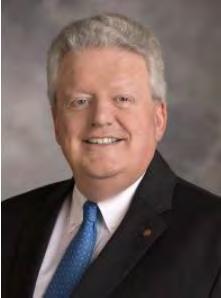
Like many new members, I knew little about The Rotary Foundation when I joined Rotary. However, everything changed in 1985 when, as incoming president of my club, I attended my first Rotary International Convention with my wife, Gay, in Kansas City, Missouri. We will never forget the thunderous support the audience showed for Dr. Albert Sabin, creator of the oral polio vaccine, who called upon Rotary to vaccinate the world’s children. It marked the dawn of PolioPlus, a pivotal moment in Rotary’s commitment to children worldwide, and I was there!
You, as a member of Rotary, are also a part of The Rotary Foundation. You are part of a worldwide movement that implements global grants to build sustainable systems for clean water and sanitation where there are none. You help train peacebuilders in a world plagued by unrest. And through supporting the Foundation, you help people rebuild their lives after natural disasters.
This is the magic of The Rotary Foundation. But let’s remember that magic doesn’t happen on its own, which is why I am counting on your support and engagement this year.
To accomplish more good throughout the world, The Foundation trustees have set an ambitious fundraising goal of $500 million for 2024-25. Achieving this goal will require the support of everyone reading this message. It will also help us reach our goal of building the Endowment Fund to $2,025 billion by 2025.
To help us keep financial support of the Foundation at the forefront throughout this year, I have developed Mark’s Magical Markers – a set of specific targets to help us achieve our overall goals. The first Magical Marker focuses on personal commitment, particularly to the Annual Fund, which supports the grants, scholarships, and vocational training teams that make the magic happen. Please contriute what you can to the Annual Fund no later than 31 August.
This year, let’s fuel the engine that takes us around the globe to do good. Let’s unleash The Magic of Rotary through the Foundation. And let’s make this year an unforgettable one – for us and for the people whose lives we will touch.
MARK DANIEL MALONEY Foundation Trustee Chair, 2024-25




District website: https://rotary6330.org/
District 6330 Governor 2024-25
Katherine Hahn
Rotary Club of Stratford









Note - Yearly breakdowns include both new qualifiers and recognition level changes
Paul Harris Society Members 118
Total Endowed Funds
May 2024
Foundation Recognition Points 4,259
Rotary Direct Participants 131
Note - Joint Major Donor/Bequest Society counts as one. EREY (USD 25 starting in 2016-17), Sustaining Members, and PHS Eligible includes all individuals, not just active club members.
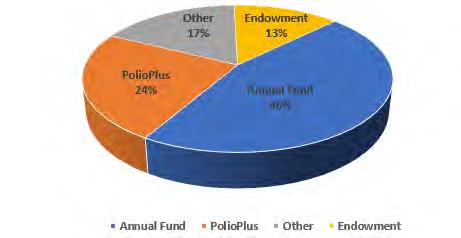
TO LEARN MORE ABOUT GRANTS IN DISTRICT 6330 –
Find the information on the home page (rotary6330.org) under the Learning tab -


TO LEARN MORE ABOUT THE ROTARY FOUNDATION IN DISTRICT 6330 -
Find the information on the home page under the Rotary Foundation tab -



Dear Rotarians!

Thank you for your dedication to Rotary and support of The Rotary Foundation. With your help, we’ve been able to fund projects to work with communities that need our help the most. But there’s so much more we could do. Rotary members respond every day to address ongoing problems and find solutions to emerging issues. And when members like you participate in service or make a donation to our Foundation, we can have an even bigger impact.
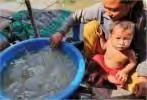
Your donation can provide clean water.
Rotary clubs in Cambodia and Taiwan collaborated to obtain and install water purification equipment for floating towns on Tonle Sap, the largest freshwater lake in Southeast Asia.
Your donation can prevent and treat disease.
Rotary clubs around the world strengthen communities by keeping them healthy. Clubs in the U.S. states of Wisconsin and Minnesota obtained a mobile clinic that provides free services for people without health insurance.
In Korea, Rotary clubs assist cyclists who have partial or complete vision loss.


Your donation can grow local economies.
Women in Uganda who lifted their families out of poverty, with support from microloans, started a Rotary club dedicated to empowering other entrepreneurs
Your donation can protect the environment.
A global grant scholarship allowed Gabi Fleury to study conservation biology and become an “interspecies diplomat” who helps communities find creative solutions to the conflicts between humans and wildlife that are becoming more common


Your donation can encourage education.
The Guatemala Literacy Project has worked for decades to improve literacy rates and keep children in school.
Please consider making an additional gift today.
You can donate online or send your contribution by mail to support our Foundation’s Annual Fund-SHARE or an areas of focus your passionate about.
Your gift will support projects like these and make Doing Good in the World possible.
Sincerely,
The Rotary Foundation

Note - During the recent D6330 Conference in Owen Sound, several Rotarians from the district provided very short oral reports about their clubs’ Foundation grants – Trudy Morris, Don Moore, Erin Zorzi, Kathleen Murphy. PDG David Elliott, the Foundation Chair, presented this part of the program.
The following summary of one report has been provided by Rotarian Don Moore Thank you, Don!
I hope this will provide some inspiration and incentive for other clubs to get involved with, and take advantage of, the Rotary Foundation Grants.
This Global Grant was awarded $40,700 USD
D6330 Hand Up embarked on an Economic Development Project in 2023 to empower women in a small village in Guatemala. The project was planned to provide training for approximately 50 women.
The goals specifically were as follows:
a) To provide a series of workshops that will provide the women for the business training that they will receive. The workshops will focus on topics such as
• Self-esteem. Developing and maintaining self-esteem
• Rights. Understanding rights and protection under Guatemalan law

• Women’s conditions. Learning about various forms of abuse and local organizations that provide support
• Empowerment. Building an empowered woman
• Eco-Feminism. Protecting the environment and incorporating green practices into all businesses
• Literacy, an introduction. This goal is important and continues through all training programs
b) To provide ongoing finance training workshops that will give the women skills and knowledge that they need to run a successful business. Topics include:
• Business sustainability
• Analyzing the market and scaling production
• Finance administration. Production costs, inventory, capital investment, decision making
• Production and Operation. Production quality control and product presentation
• Teamwork and Human Resources
• Marketing and Commercialization. Competition and business alliances
Depending on the village in which the women reside and their skills and interests, training was to be provided in 6 areas of business. Three of these businesses were new or expanding businesses – Mushroom Patties, Honey, and Chocolate.
Mushroom Patties. The Mushroom Patties is a new business run by three women who are producing vegetarian mushroom patties for seven local clients.
Honey. Honey is produced by “Casa Miel” which is a business run by three women and two men. In addition to honey production, the group was trained to produce honey-based products such as soap, candles, infusions, and lotion.
Chocolate. Chocolate is produced by “Mama Cacao” which is a business run by a group of twelve women. They have received training in business administration to strengthen their production and sales.
The remaining women (approximately 30) are being trained to work in areas of business that already exist in the area, but where production does not currently meet the market demand.
These businesses include Organic Eggs.
Organic Eggs. The farms are located in two separate communities with 125 and 85 laying hens respectively. They produce approximately 60 eggs per day which are distributed among four restaurants/hotels as well as some individual customers.
At the Santa Cruz farm, the ladies have created a saving fund to invest in the purchase of more laying hens to increase the egg production. Over the next few months, the project’s plan is to increase the production of both farms through the purchase of 100 hens for each farm.
Mushroom Cultivation. Mushroom Cultivation is produced by a group of ten women in three separate communities. Monthly supplies are provided in order to increase production.
With an average of 4 children per woman, the children will also benefit from improved access to nutritional food and the possibility of an education. (Another Hand Up GG is a Literacy Project.) There are no reported cases of malnutrition among the children of the beneficiaries of the project.
With a standard of living below the Guatemalan average, the entire village will benefit from an increase in income and standard of living.
Photos follow on the next page -
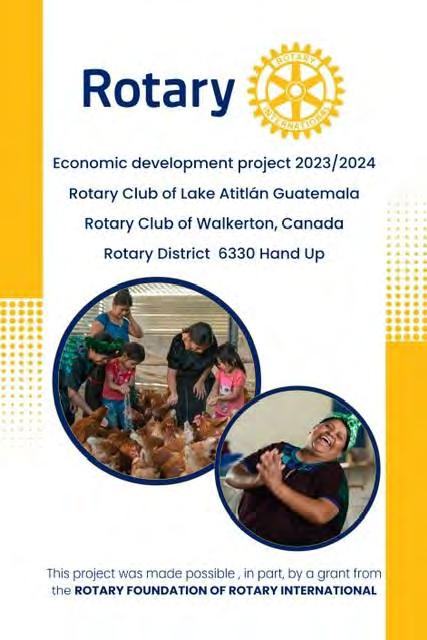
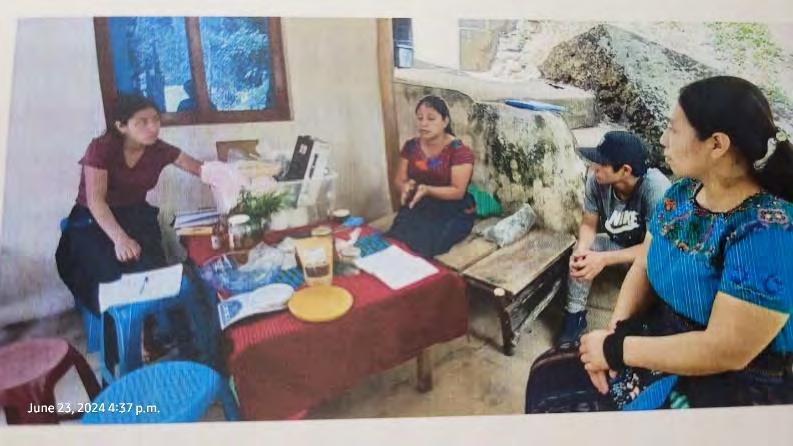
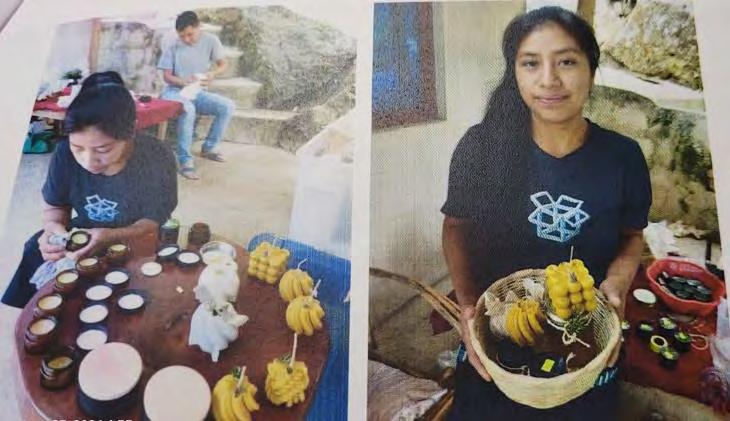
And a final comment from PDG Don3 – A special thanks from Hand Up for all the support from clubs and individual Rotarians in D6330 for their continued support of Hand Up projects. We want more people to join our group.


3 PDG Don is the Asia-Pacific Correspondent for Central States Rotary Youth Exchange, Past Chair CSRYE

Hand Up is an association of Rotary Clubs within District 6330 formed around 30 years ago with the goal of providing international humanitarian aid through the use of Global and District Grants by offering a helping hand to those less fortunate than ourselves.
Initially Hand Up focused on water, economic and maternal health projects in Cameroon. Unfortunately, due to civil unrest and the unstable political climate Hand Up has temporarily suspended operations in this part of Africa.
More recently Hand Up has been implementing similar projects in Guatemala. (scroll down to see some recent project examples)
You can help by:
• Joining our team. We typically meet every 2 months via Zoom to review project ideas and monitor the status of approved projects.
• Asking your club to donate.
• Making a personal donation to a project. These are eligible for a tax receipt and also count towards Paul Harris points.
• Asking for a speaker from Hand Up to make a presentation to your club on the latest projects and opportunities to help.
To find out more about Hand Up, contact us:
Don Moore, Secretary (Email: dinty@wrightman.ca) (Tel: 519 881 7564)
To donate by mail - Mail cheque payable to:
Rotary Hand Up
Bob Carson, Treasurer 525 9th Street E Owen Sound, N4K 1P4 Ontario, Canada

For more information, click here.
This small, rural village located in the western highlands of Guatemala lacked sufficient clean water. From 2021-2023, Hand Up, working in collaboration with the Rotary Club of Huehuetenango, installed new latrines and a hand wash station at the school and two new water cisterns, replacing one small cistern and an open-air pit.
Hand Up partnered with the Rotary E-Club Lake Atitlan and is working with an NGO, Amigos de Santa Cruz, to provide economic development to 50 women in the villages of Santa Cruz la Laguna. Training, equipment, and supplies are being provided so that the women may establish their own businesses. There has been a sign erected indicating the involvement of the two Rotary clubs, The Rotary Foundation, and the D6330 Hand Up Committee
Project construction finished in winter 2023/24 for the impending rainy season starting in April. Originally planned for 8 harvesters with a total capacity of 80,000 liters, a special deal with the tank manufacturer allowed us to install 21, boosting the combined capacity to 141,000 liters, benefiting 85 families with a supplementary clean water source.
Santa Cruz La Laguna, Guatemala - $30,000 USD Tutoring Program and Children’s Community Library
Arusha, Tanzania - $30,000 USD School Wash Facilities (currently under review by committee)



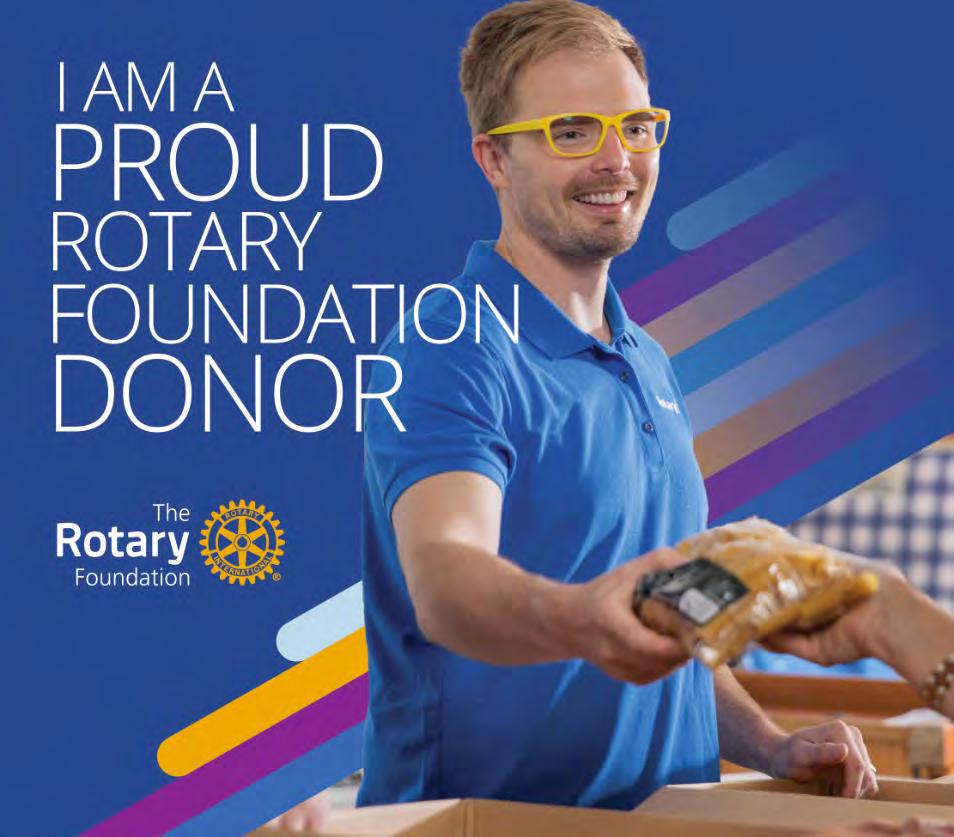

In the mountains of Poland, 26 children traumatized by violence get a chance to be kids again at Rotary camp
By Iuliia Mendel Produced by Monika Lozinska
Beneath the emotional scars of living in a Ukrainian war zone, Mykyta Berlet flashes the same mischievousness of any other 12-year-old boy headed to camp.
He wants to laugh, play pranks and on the last night of camp “we will cover everyone with toothpaste,” he says excitedly.
Mykyta and 25 other Ukrainian youths headed to the resort town of Zakopane in the foothills of southern Poland are naturally focused on fun. But their two-week respite organized by Rotary members has a higher purpose: To help the children heal and cope with the trauma they may encounter when they go home.
Each camper has a parent or sibling killed or injured in the fighting in Ukraine. Psychologists at camp will guide them along the way during an itinerary that mixes escape and therapy.
Olga Zmiyivska, a member of the Rotary Club of Kharkiv Multinational in Ukraine, has brought children to the camp for two years and has witnessed its impact.
“After the trip, they are more willing to make contact and open their hearts,” she said.
Click here to read more

Rotary makes high-quality health care available to vulnerable mothers and children so they can live longer and grow stronger.
We expand access to quality care, so mothers and children everywhere can have the same opportunities for a healthy future.
An estimated 5.9 million children under the age of five die each year because of malnutrition, inadequate health care, and poor sanitation all of which can be prevented.
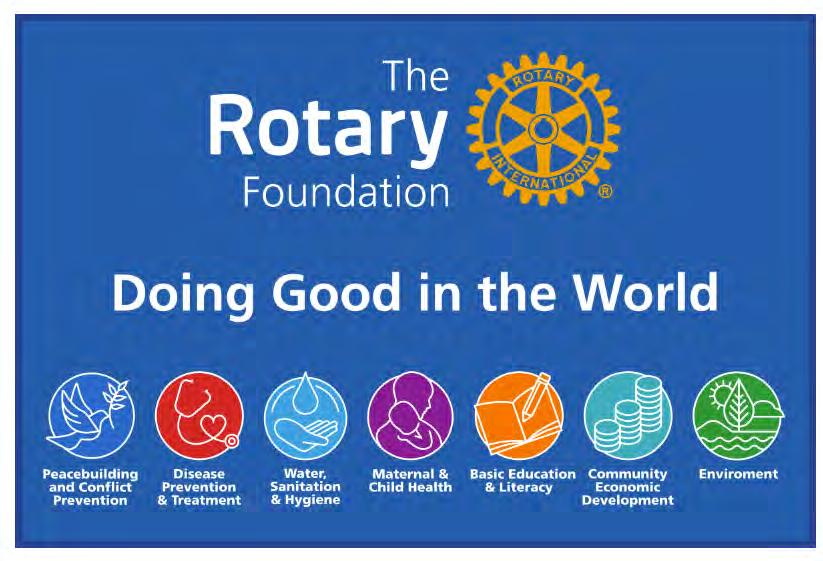

By Vanessa Glavinskas Photographs by Robert Gill
A mother is in labor, and she’s frightened. Her baby isn’t due for three months. The closest hospital is 30 miles away, and although she makes it there in time, the baby is born weighing barely 2 pounds.
And there’s another problem.
The hospital’s neonatal intensive care unit has only seven incubators, and all are in use, so the baby must be transferred to another hospital to receive the critical care he needs. If he survives the transfer, his parents will need to find a way to make trips to that hospital for months.
Many new mothers were facing similar situations at Dr. Leopoldo Bevilacqua Regional Hospital, a state-run facility in Brazil’s Ribeira Valley. Lack of equipment meant some of the hospital’s most vulnerable newborns had to be transferred, which was a factor in São Paulo state’s high infant mortality rate.
“There are two realities here: people who can pay for a private hospital and those who can’t,” says Lina Shimizu, who spearheaded the project for the Rotary Club of Registro-Ouro, Brazil. Those who can’t, she says, often have to travel long distances to get to a state-run hospital such as Leopoldo Bevilacqua, which serves 24 towns.
The Rotary Club of Registro-Ouro and the Rotary Club of Registro partnered on a Rotary Foundation global grant with two clubs in Nakatsugawa, Japan.
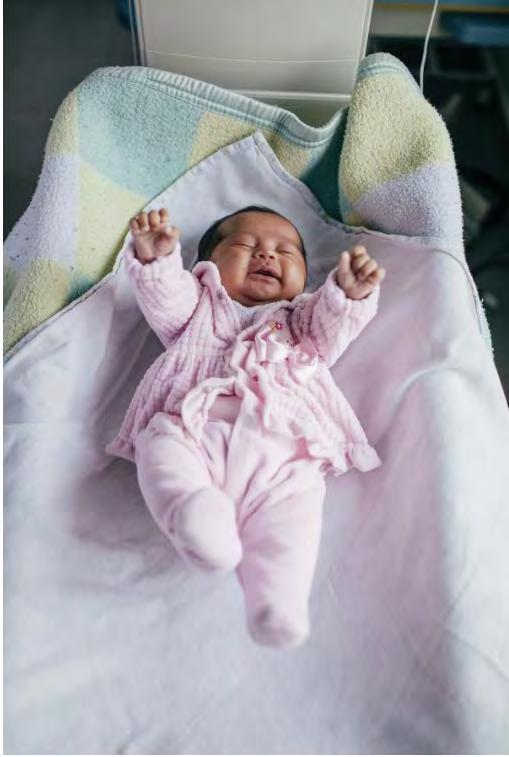
Through the partnership, Brazilian Rotarians raised $172,500. They funded equipment including five incubators for the hospital’s neonatal intensive care unit (NICU), which nearly doubled the hospital’s capacity to care for fragile newborns. In 2013, 129 babies were admitted to the NICU; since the completion of the project, the hospital has been able to care for about 220 babies per year.
Other equipment provided through the grant included five ventilators, a bilirubin meter, three heated cribs, five vital-sign monitors, and a super LED microprocessed phototherapy unit to treat babies with jaundice. The grant also funded the cost of publicity to inform residents about prenatal care workshops conducted by area health workers. The publicity campaign aimed to reach mothers in remote areas who may not know what services are available to them or about the importance of prenatal care and breast-feeding.
Click here to read more

for Healthy Families in Nigeria helps families focusing on the fundamental needs of women
By Diana Schoberg Illustrations by Gwen Keraval
In March 1994, at the Anaheim Hilton and Towers, Emmanuel Adedolapo Lufadeju and Robert Zinser struck up a conversation. The two men were district governors-elect, and they had traveled to California Lufadeju from Nigeria and Zinser from Germany for Rotary’s annual International Assembly. As they spoke, the men discovered that their interests overlapped.
Zinser listened intently as Lufadeju described a visit he’d recently made to a hospital maternity ward in Nigeria. At the time, five out of 100 babies in that country died in their first 28 days. Lufadeju had learned that the high rate of newborn fatalities resulted, in part, from poor prenatal and maternal care.
Zinser spoke up. “I can help.”
In 1995, Lufadeju and Zinser started a small maternal and child health-care project in Nigeria’s northern state of Kaduna. Today, their interventions have spread across the country and are changing the lives of millions of families all because of that serendipitous encounter 28 years ago. “The story of our project is a story of Rotary friendship,” Lufadeju says. “I thought it was something I would do as governor and go away. But it has lasted the better part of my life.”
In June, The Rotary Foundation announced that the program, known as Together for Healthy Families in Nigeria, is receiving the Foundation's second $2 million Programs of Scale grant, an award that will build on the program's past success to accomplish even more in the future.
"This is really about changing the way societies and health systems address the fundamental needs of women," says John Townsend, chair of the Rotary Action Group for Reproductive, Maternal, and Child Health, and chair of the ethical review board at the Population Council. "And that's important because women are the drivers of family and development. If a woman dies or is seriously disabled, the entire family is affected."
Ultimately, Together for Healthy Families in Nigeria wants to reduce maternal and neonatal mortality in the target local government areas by 25 percent. To do so, it aims to improve maternal health and access to family planning services while strengthening health systems at the national, state, and local levels. It also aims to increase the use of maternal care and family planning services by educating community members about their benefits, and to train health care workers to improve skills and track data on maternal and neonatal deaths so that interventions can be tailored to specific needs.
Together for Healthy Families in Nigeria is sponsored by Rotary District 1860 (Germany) in partnership with Districts 9110, 9125, 9141, and 9142 (Nigeria), as well as the Reproductive, Maternal, and Child Health action group. Rotarians and Rotaractors in Nigeria coordinate project activities, oversee training, lead advocacy efforts, and engage with the government.
At right, A mother helps weigh her child as part of a growth monitoring and promotion exercise at Dei Dei Comprehensive Health Centre in Abuja, Nigeria.
Photograph: Courtesy of Jan-Peter Sander/RMCH
Members in Germany lend their technical and administrative expertise to support management, monitoring, and evaluation. The group has applied for funding from Germany's Federal Ministry of Economic Cooperation and Development, which has been contributing since the very first project, including $1.36 million toward the most recent global grant project.
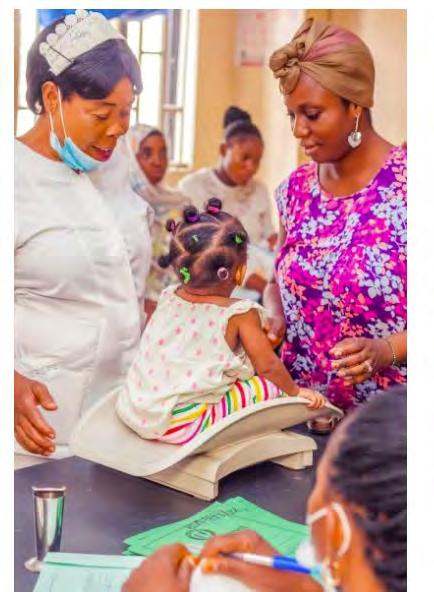
"Right from the beginning, they were the co-funders," Zinser says. "Not once, but always. You can convince somebody once for co-funding, but if you convince them year after year, you are on the right track."
Click here to read the full article
Not to be confused with a Paul Harris Fellow (which means a life-time gift of $1000 to The Rotary Foundation's annual fund), the Paul Harris Society is the name given to those Rotarians who pledge a $1000 gift annually –every year
You may know these committed individuals they wear a "flag" below their Rotary pin that reads "PHS."
One easy way to give at the $1000 level is through Rotary Direct sign up and an amount of money you designate is automatically deducted from your account each month. Learn more at www.rotary.org.
Members of the Paul Harris Society know that the need never ends -- and neither should the giving.
D6330 Long-time Paul Harris Society Chair is Rotarian Jamie Pole.
What your giving supports
Paul Harris Society gifts have helped provide:
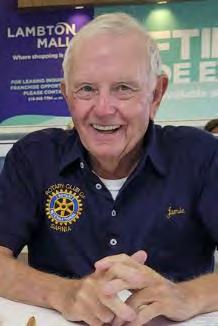
• Vocational training for teachers establishing an early childhood education center in South Africa
• Water filters, toilets, and hygiene training to prevent fluorosis, diarrhea, and other diseases in India
• A scholarship for a medical professional in Italy to research treatments that minimize mortality rates among premature babies
• Peace-building seminars for 200 teachers and 1,300 students in Uganda
• Treated mosquito nets and medical services that prevent malaria in Mali



In District 6330 we are proud to have over 116 members in our Paul Harris Society.
We have over 32 of our clubs that now have members in the Paul Harris Society.

For information please contact

Raise for Rotary is a platform that allows individuals, clubs, and districts to create online fundraisers that benefit The Rotary Foundation. It is a great way to celebrate personal events and special occasions. Organizers can share their fundraisers through social media, email, and text, so family, friends, colleagues, and supporters can donate online.
The Raise for Rotary site will notify you immediately when a donation is made. You can send a note of thanks to the individual. The Foundation sends the official thank you donation notification and tax receipt.
The site can easily be updated with thank you notes, flyers, photos and videos, or just about any information you’d like to include. It’s so easy to keep the site updated with new information. Adding major gifts is a breeze.
External non-Rotary fundraising platforms charge fees and donors do not receive Paul Harris recognition points. By using our own platform, the funds you raise go directly toward Doing Good in the World.
For further information visit https://raise.rotary.org/ FAQs https://raise.rotary.org/faq #trfCanada #rotary #raiseforrotary

Summary of new polioviruses this week, cases and positive environmental isolates:
• Afghanistan: one WPV1 case and 10 positive environmental samples
• Pakistan: three WPV1-positive environmental samples
• Chad: one cVDPV2-positive environmental sample
• Côte d’Ivoire: one cVDPV2-positive environmental sample
• Guinea: two cVDPV2-positive environmental samples
• Nigeria: three cVDPV2 cases
• Senegal: two cVDPV2-positive environmental samples

• South Sudan: one cVDPV2 case and one cVDPV2-positive environmental sample
• Zimbabwe: two cVDPV2-positive environmental samples

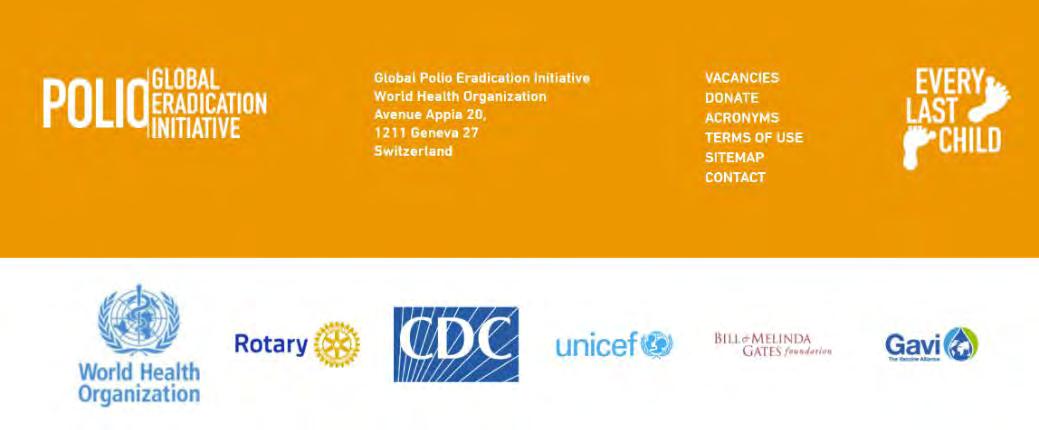
For more information, click here - http://polioeradication.org/polio-today/polio-now/this-week/
Click here to learn the difference between Wild Polio Virus (WPV) and Vaccine-derived Polio Virus. (VDPV)
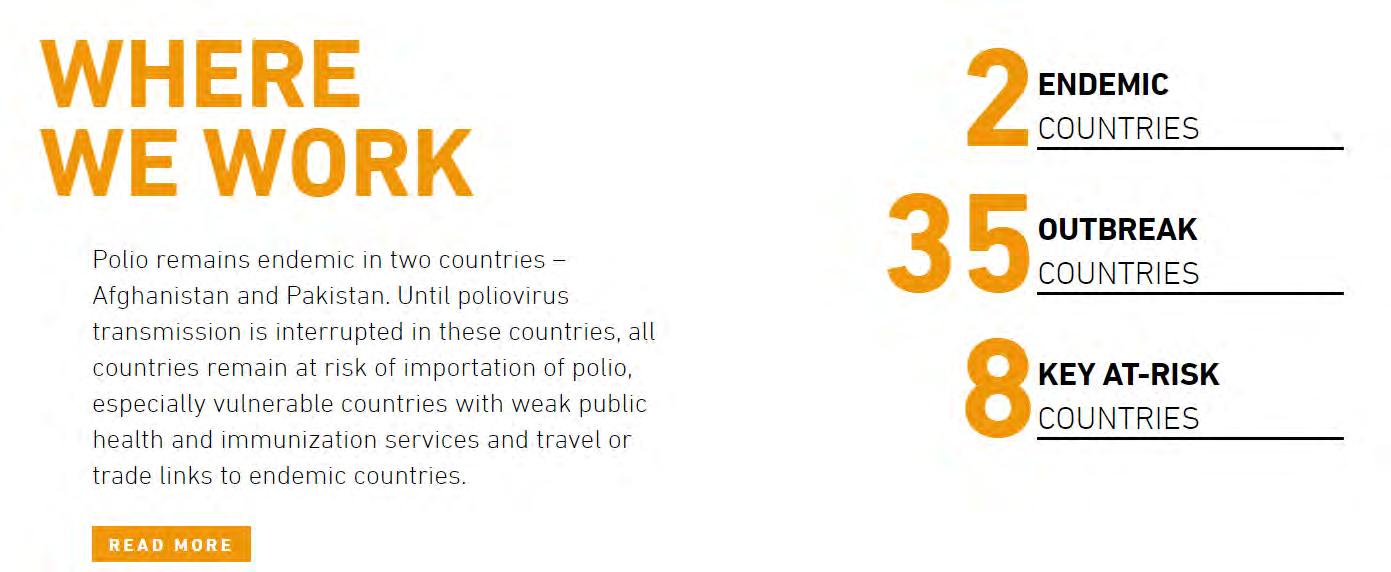
Endemic countries. Polio remains endemic in two countries Afghanistan and Pakistan. Until poliovirus transmission is interrupted in these countries, all countries remain at risk of importation of polio, especially vulnerable countries with weak public health and immunization services and travel or trade links to endemic countries.
Outbreak countries. Outbreak countries are those that have stopped indigenous wild poliovirus but are experiencing re-infection either through the importation of wild or vaccine-derived poliovirus from another country, or the emergence and circulation of vaccine-derived poliovirus.
All countries remain at risk of polio until the disease has been completely eradicated from the world. Until then, the best way for countries to minimise the risk and consequences of polio infection is to maintain strong population immunity levels through high vaccination coverage, and strong disease surveillance in order to rapidly detect and respond to polio.
To stop these outbreaks, it is necessary to fully implement international outbreak response guidelines.
Key at-risk countries. Low levels of immunity and surveillance leave countries at risk of polio returning. To ensure that every country stays free from polio, it is essential to reach every child with polio vaccines and to strengthen disease surveillance.
The countries on this at-risk list include Burkina Faso, Eritrea, Ethiopia, Guinea-Bissau, Liberia, Senegal, Sierra Leone, South Sudan, Tajikistan, Uganda
Travel advice
WHO’s International Travel and Health recommends that all travellers to polio-affected areas be fully vaccinated against polio. Residents (and visitors for more than 4 weeks) from infected areas should receive an additional dose of OPV or inactivated polio vaccine (IPV) within 4 weeks to 12 months of travel.
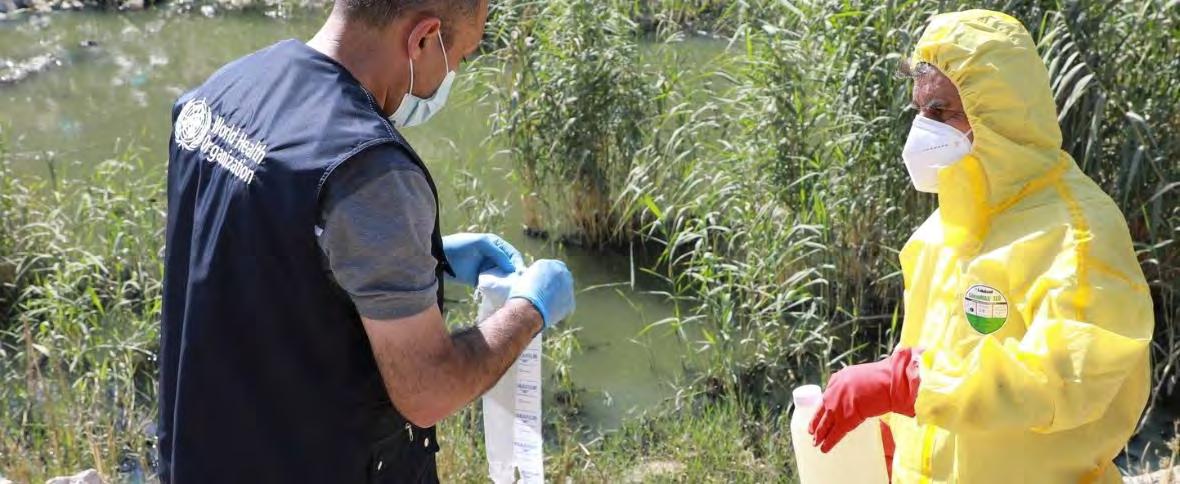
As of January 2024, Iraq has achieved the polio transition process in full. It is the first country among the polio transition priority countries to achieve this remarkable feat.
Polio transition – what is it? Polio transition involves repurposing polio assets – knowledge, network and infrastructure – to strengthen the broader public health functions of a country within the overall context of strengthening the national health system. These wider functions include immunization, vaccine-preventable diseases surveillance, and emergency preparedness and response.
To safeguard polio essential functions through sustainable resources, it is crucial to achieve the full transition by shifting from external to domestic financing. In turn, successful polio transition and the integration and maintenance of polio assets to strengthen routine immunization, disease surveillance and outbreak response have social and economic benefits and offer a very high return on investment.
Dr Hanan Balkhy, WHO Regional Director for the Eastern Mediterranean, commended Iraq’s public health win and the positive impact it will yield: “I would like to congratulate Iraq for the achievement of polio transition in full in a considerably short period of time. This is a great step towards enhancing the health system’s resilience and regaining its capabilities to better serve the Iraqi population, making the best use of the polio programme assets.”
Iraq’s success in polio transition and integrating polio assets into the national health system will ensure sustainable funding of polio essential functions through domestic financing to maintain the country’s polio-free status.
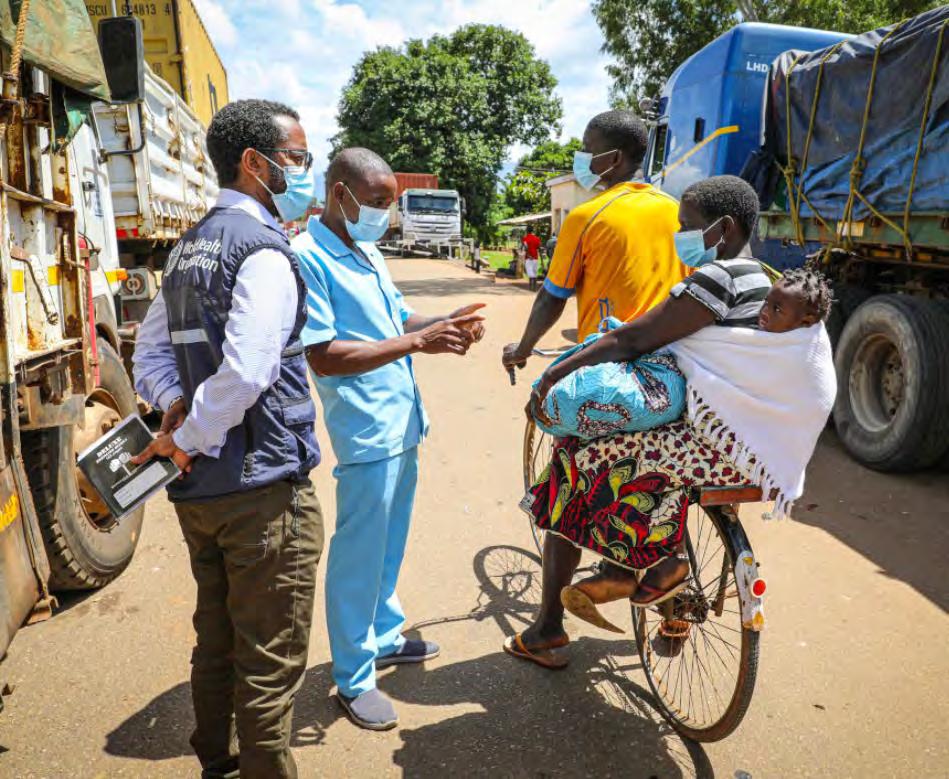
Officially stopped! On 14 May 2024, the wild poliovirus outbreak in Malawi and Mozambique – which paralyzed nine children across the countries between February and August 2022 – was officially stopped
The virus, linked to a strain originally found in Pakistan, was unable to regain a foothold in the African region.
Incredible achievement! This incredible achievement was made possible by the tireless efforts of health workers and authorities across five countries – Malawi, Mozambique, Tanzania, Zambia, and Zimbabwe.
Over two years, with support from the Global Polio Eradication Initiative (GPEI), they reached more than 50 million children through massive, coordinated vaccination campaigns and set up 15 new wastewater surveillance sites to quickly detect and respond to any trace of polio.
But that wasn’t all. The gender norms, roles, and relationships that can impact a health worker’s ability to access every household and guide a family’s decision to vaccinate their child were considered every step of the way.
From planning campaigns to dropping the vaccine in children’s mouths, acknowledging and addressing these nuances was key to ensuring that every child was protected from this devastating disease.
Click here to read the full article.
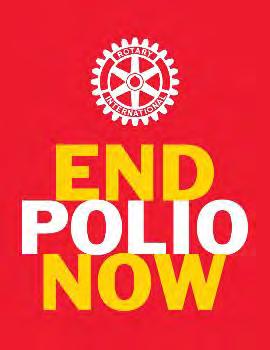
Commitment to Ending Polio: The PolioPlus Society is dedicated to eradicating polio worldwide. By joining, Rotarians can directly contribute to this important mission, helping to ensure that polio is permanently eradicated.
Making a Difference: The contributions from PolioPlus Society members fund critical immunization campaigns, surveillance efforts, and public health initiatives. Members have the satisfaction of knowing their efforts are making a tangible difference in the fight against polio.
Global Impact: The PolioPlus program is a global initiative, and being part of the society allows Rotarians to be part of an international effort. This helps build a sense of global community and solidarity among members.
Legacy of Service: Rotary has been at the forefront of the fight against polio for decades. By joining the PolioPlus Society, Rotarians can continue this legacy of service and contribute to one of Rotary's most significant humanitarian achievements.
Networking Opportunities: Membership in the PolioPlus Society connects Rotarians with like-minded individuals who are passionate about public health and humanitarian efforts. This can lead to valuable networking opportunities and collaborations.

Personal Fulfillment: Contributing to the eradication of polio can be deeply fulfilling. Knowing that one’s efforts are helping to eliminate a debilitating disease and prevent future generations from suffering can provide a strong sense of personal accomplishment.
Joining the PolioPlus Society allows Rotarians to be actively involved in one of the world's most important public health initiatives, reinforcing their commitment to Rotary's values and the goal of a polio-free world.
Your donation changes lives! and this information bears repeating…

GIVE WHERE THE NEED IS GREATEST! CLICK BELOW TO GIVE AND LEARN MORE.

When you give to The Rotary Foundation, you fuel our service projects – projects that eradicate polio, promote peace, and improve developing countries.
• Annual Fund Share
• PolioPlus Fund
• World Fund
• Disaster Response Fund
• Brazil Flood Response Fund
There are numerous
to support The Rotary Foundation.
Humanitarian, Educational, Cultural Programs. Every amount contributed to The Rotary Foundation is spent in support of humanitarian, educational, and cultural programs, and their operations.
Apply for and receive TRF grants. Clubs and districts apply for and receive Foundation grants to carry out worthy projects worldwide.
Consider donating $100. Donating $100 to The Rotary Foundation can have a significant impact through various programs and initiatives. Here are some examples of what $100 can achieve:
Polio Eradication: Contribute to the Global Polio Eradication Initiative. $100 can help immunize over 100 children against polio, bringing the world closer to eradicating this disease.
Clean Water and Sanitation: Support projects that provide clean water and sanitation facilities to communities in need. $100 can help provide a water filter for a family, ensuring access to clean drinking water.
Education: Fund educational programs and scholarships. $100 can supply books and educational materials for students in underprivileged areas or help cover school fees for a child for a year.
Health Services: Improve health and well-being. $100 can contribute to medical supplies, health camps, or training for healthcare workers, improving access to essential health services.
Economic Development: Support microfinance and entrepreneurship programs. $100 can help provide a small loan to a woman in a developing country, enabling her to start or expand a business, thereby supporting her family and community.
Peace and Conflict Resolution: Fund peace-building and conflict resolution programs. $100 can help train individuals in conflict resolution techniques or support workshops aimed at promoting peace in conflictprone areas.
By contributing to these diverse areas, a $100 donation to The Rotary Foundation can have a meaningful and lasting impact on individuals and communities around the world.

When you donate online, you get to choose where your donations go. Support thousands of service projects our people of action are tackling around the world. Outright gifts can be made easily with The Rotary Foundation online contribution form.

Month
July
Theme
Maternal and Child Health
August Membership and New Club Development
September Basic Education and Literacy
October Economic and Community Development
November Rotary Foundation
December Disease Prevention and Treatment
January Vocational Service
February Peace and Conflict Prevention/Resolution
March Water and Sanitation
April Environment
May Youth Service
June
Rotary Fellowships
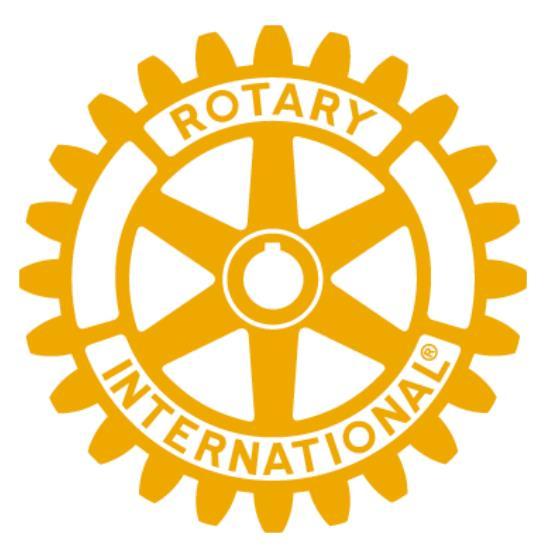
Click here to learn more from the Rotary Brand Centre.

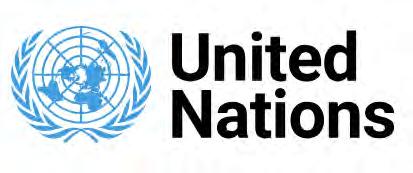
World Population Day
July 11

World Youth Skills Day
July 15
Nelson Mandela International Day
July 18

World Drowning Prevention Day
July 25
An estimated 236,000 people drown every year, and drowning is among the ten leading causes of death for children aged 5-14 years.
World Hepatitis Day
July 28
International Day of Friendship
July 30
World End-Human-Trafficking Day
July 30


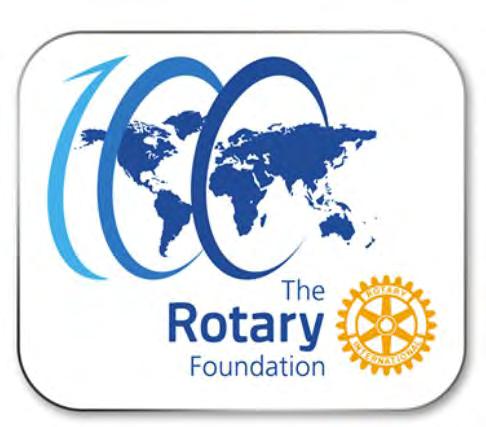
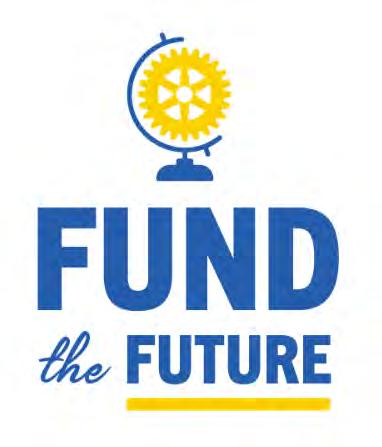

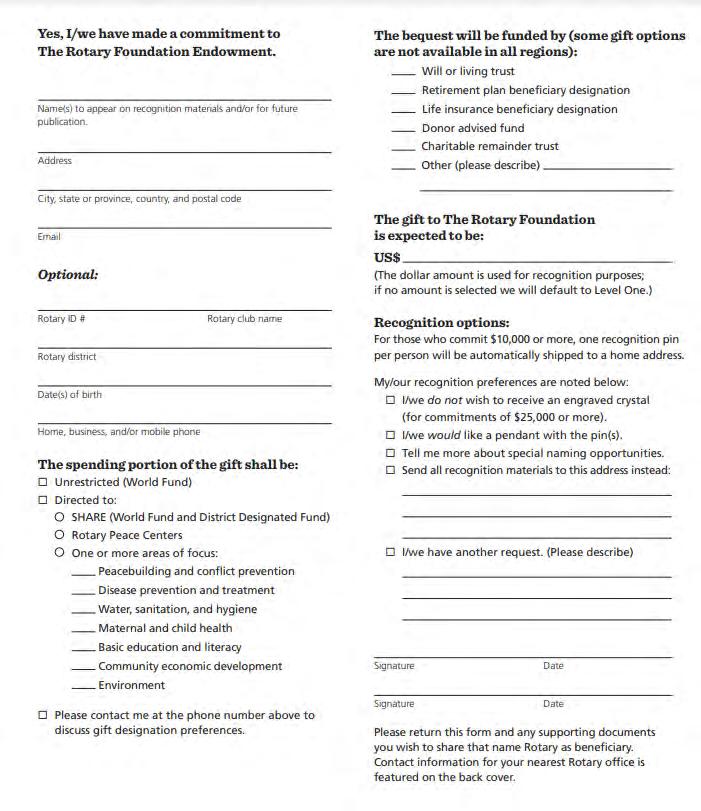
Click here to read the Endowment Fund Financial report for 2022-23.
Rotarians can get involved in various types of service –
Club Service, Community Service, International Service, Vocational Service, New Generations (Youth) Service
A list of Rotary's 7 areas of focus and a brief description of each:
1. Peacebuilding and conflict prevention: Rotary aims to address the root causes of conflict and promote sustainable peace through initiatives that support education and training, promote community dialogue, and build networks of peacebuilders.
2. Disease prevention and treatment: Rotary works to improve health outcomes and reduce the spread of disease through initiatives that promote immunization, provide access to clean water and sanitation, and support medical research.
3. Water and sanitation: Rotary aims to improve access to clean water and sanitation in underserved communities, through initiatives that promote infrastructure development, support education and training, and raise awareness about the importance of clean water and sanitation.
4. Maternal and child health: Rotary works to improve maternal and child health outcomes by supporting initiatives that provide access to prenatal and postnatal care, promote vaccination, and support nutrition and education programs for mothers and children.
5. Basic education and literacy: Rotary aims to improve access to education and literacy for children and adults, through initiatives that support teacher training, provide educational resources and materials, and promote community-based programs that increase literacy rates.
6. Economic and community development: Rotary works to support economic and community development initiatives that promote job creation, increase access to financial services, and support small business development and entrepreneurship.
7. Supporting the environment: Rotary aims to support environmental sustainability initiatives, through programs that promote conservation, improve access to clean energy, and support the development of sustainable agriculture and other eco-friendly practices.
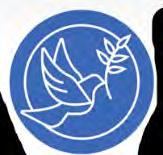
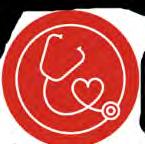
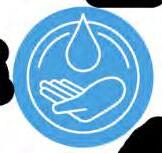





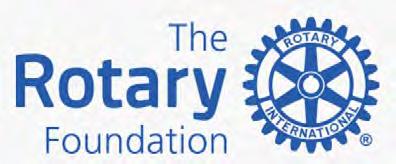

As we approach the new Rotary year, we can look forward past July and getting a head start on August Rotary International designates August as Membership and New Club Development Month, focusing on strengthening the organization by attracting new members and supporting the growth of new clubs. Here’s an expanded look at what this entails:
• Awareness Campaigns: Clubs often engage in local awareness campaigns to educate the community about Rotary’s mission and the benefits of membership.
• Membership Drives: Organized events and initiatives aimed at attracting new members. These might include open houses, social events, or community service projects where potential members can see Rotary in action.
• Personal Invitations: Current members are encouraged to invite friends, family, and colleagues to join Rotary, leveraging personal connections to expand the membership base.
• Engagement Activities: Clubs focus on keeping current members engaged and motivated by organizing interesting and impactful projects and events.
• Member Recognition: Recognizing the efforts and contributions of existing members through awards, spotlights in club meetings, or special recognition events to foster a sense of belonging and appreciation.
• Training and Development: Providing opportunities for personal and professional development through workshops, seminars, and leadership training.
3. Formation of New
• New Club Development: Encouraging the formation of new Rotary clubs in underserved or unrepresented areas to increase Rotary’s reach and impact.
• Satellite Clubs: Supporting the creation of satellite clubs, which are smaller groups that meet at different times or locations than the main club, providing flexibility for potential members.
• Specialty Clubs: Establishing clubs with a specific focus or interest, such as e-clubs that meet online, cause-based clubs centered on a particular issue, or profession-based clubs.
• Broadening Membership Base: Emphasizing the importance of diversity in membership, including age, gender, ethnicity, and professional backgrounds to enrich the club experience and expand perspectives.
• Inclusive Practices: Implementing practices that make clubs more welcoming and inclusive, such as flexible meeting formats and times, family-friendly events, and mentorship programs for new members.
• Enhanced Visibility: Using social media, local media, and public events to increase Rotary’s visibility and highlight the benefits of joining.
• Success Stories: Sharing success stories and testimonials from current members about how Rotary has positively impacted their lives and communities, making the case for membership.
6. Membership Resources and Support
• Rotary International Resources: Providing clubs with resources from Rotary International, such as membership toolkits, guides, and online webinars to support recruitment and retention efforts.
• Mentorship Programs: Establishing mentorship programs where seasoned Rotarians mentor new members, helping them integrate into the club and understand Rotary’s values and opportunities.
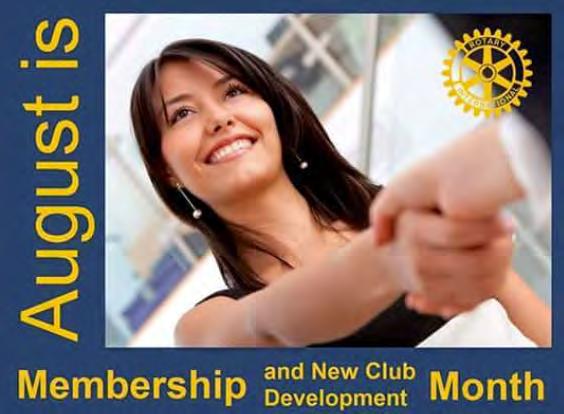
• Connecting with Alumni: Reaching out to former members, Rotary Youth Exchange participants, and Rotary scholarship recipients to invite them back into the fold, recognizing their unique connection to Rotary and potential as members.
By focusing on these areas during August, Rotary clubs can grow their membership, enhance the experience for current members, and increase their impact on communities around the world.

Click here to listen to We are the World.

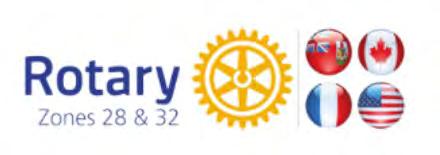
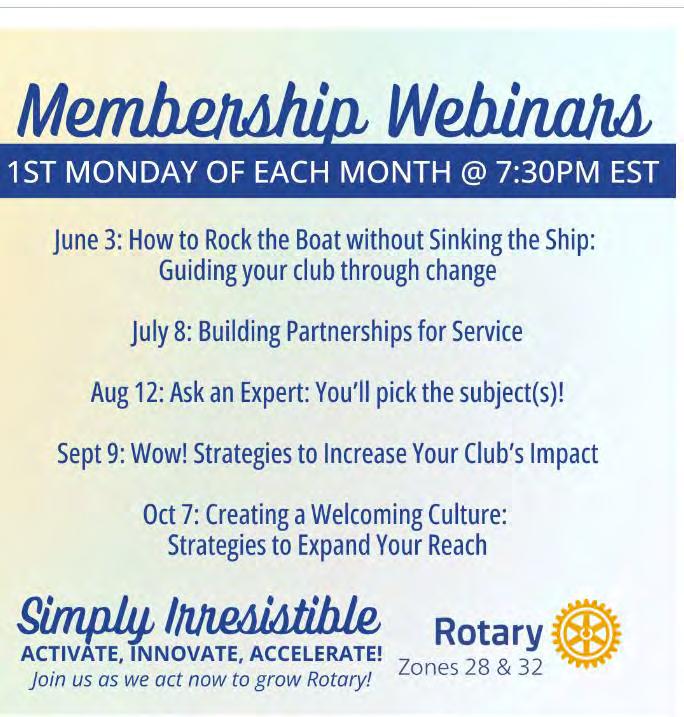
Click here to join the webinars. Make a note of the link below for future webinars.
https://us06web.zoom.us/j/86755780910?pwd=pOP9Y2J6g78EkCgPLFnDT4kH5OOgfc.1#success

Click here to view the home page of Zones 28 & 32.
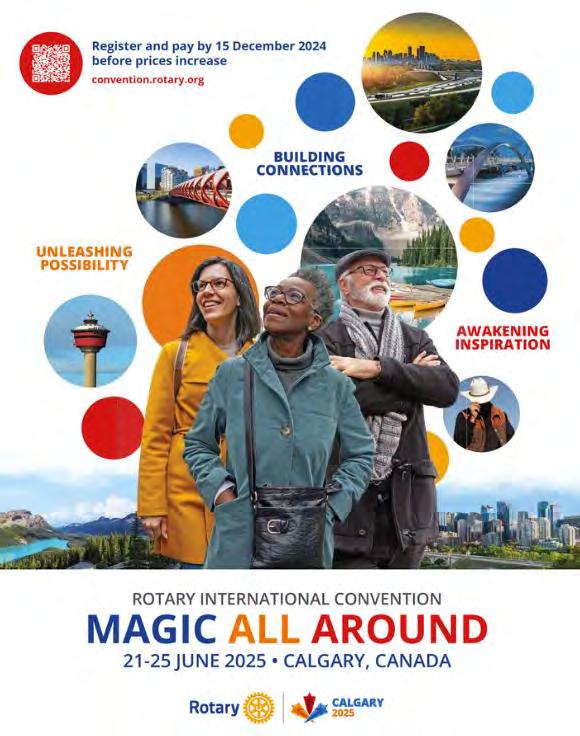

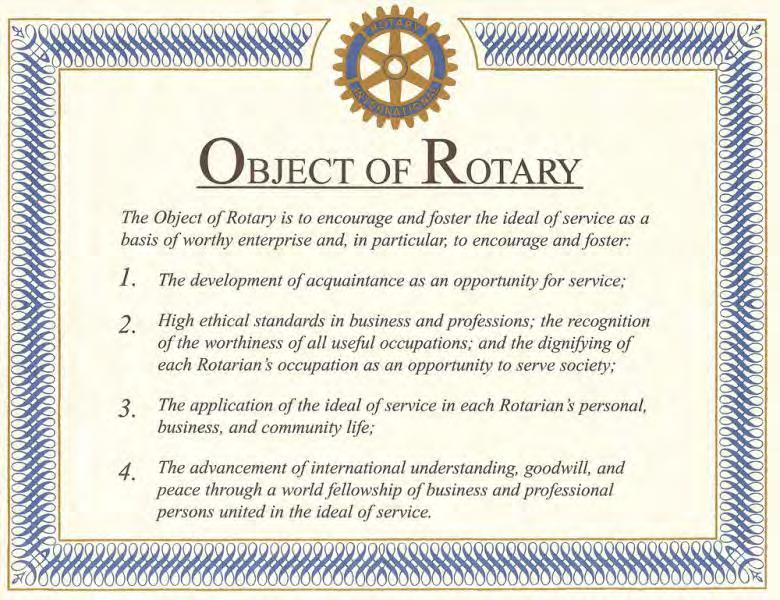
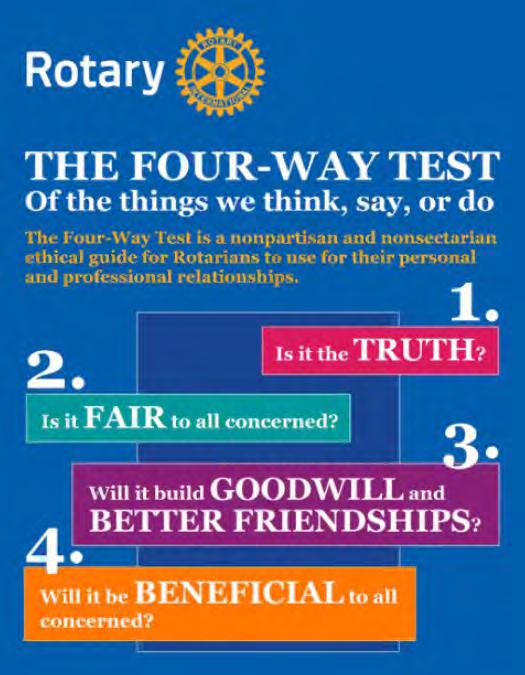
Click the 4-way test above and open the link to hear the Four-Way Test by RC of
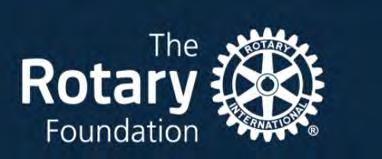

Click here for a short video
Our Every Rotarian, Every Year (EREY) initiative encourages all Rotary club members to contribute something each year to The Rotary Foundation. We hope that you can consider at least $100 USD every year to help us reach our goal to support the Rotary Foundation financially each year.

Sustaining member. One who contributes $100 USD every year is a Sustaining Member. With EREY, we encourage you to contribute an amount you can afford every year.

What is a Rotary Foundation Bequest Society Member?
Those who have made commitments for future gifts of $10,000 or more to The Rotary Foundation are invited to join the Bequest Society.
Donors may elect to receive various benefits and recognition pieces commemorating their commitment at each new recognition level, including pins, crystals, named funds, and special seating at the Rotary International Convention.
A bequest gift of at least $10,000 in your name to The Rotary Foundation creates a legacy of your generosity and compassion as you are helping many people live better lives around the world.
Today there are over 18,000 Bequest Society Members worldwide. Will you join them by leaving a gift to Rotary in your estate? Contact the Rotary Foundation’s Planned Giving team.

Your in-person registration includes a full day of activities:
• Admission to the convention’s opening and closing ceremonies, general sessions, breakout sessions, and the House of Friendship.
• Transportation between your hotel and the convention venue, if you booked your hotel through Rotary’s official housing partner, Maritz Events.
What’s not included:
• Preconvention events
• Rotary- and host-ticketed events
• Housing, meals, and transportation to and from the airport
• If you register as Saturday, House of Friendship only, anything other than access to the House of Friendship on Saturday, 21 June, is not included
and refunds
Should you need to cancel a registration, a $50 processing fee applies to each registrant (each person). Requests to cancel registrants or Rotary-ticketed events must be received in writing by 30 April 2025. Cancellations caused by visa denial must be received in writing by 25 June 2025.
We prefer you cancel online, but you can also email ri.registration@rotary.org or fax +1-847-556-2194.
RI will refund registration and ticket fees if the convention is cancelled but is not responsible for travel or other related costs incurred by Rotarians and their guests.
Registration and tickets are not transferable.

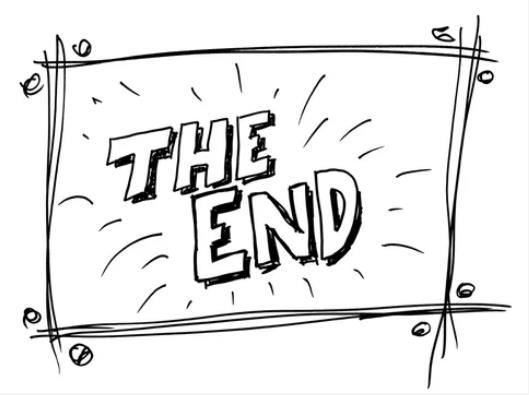

When tomorrow comes, this day will be gone forever. In its place is something that you have left behind. Let it be something good.4